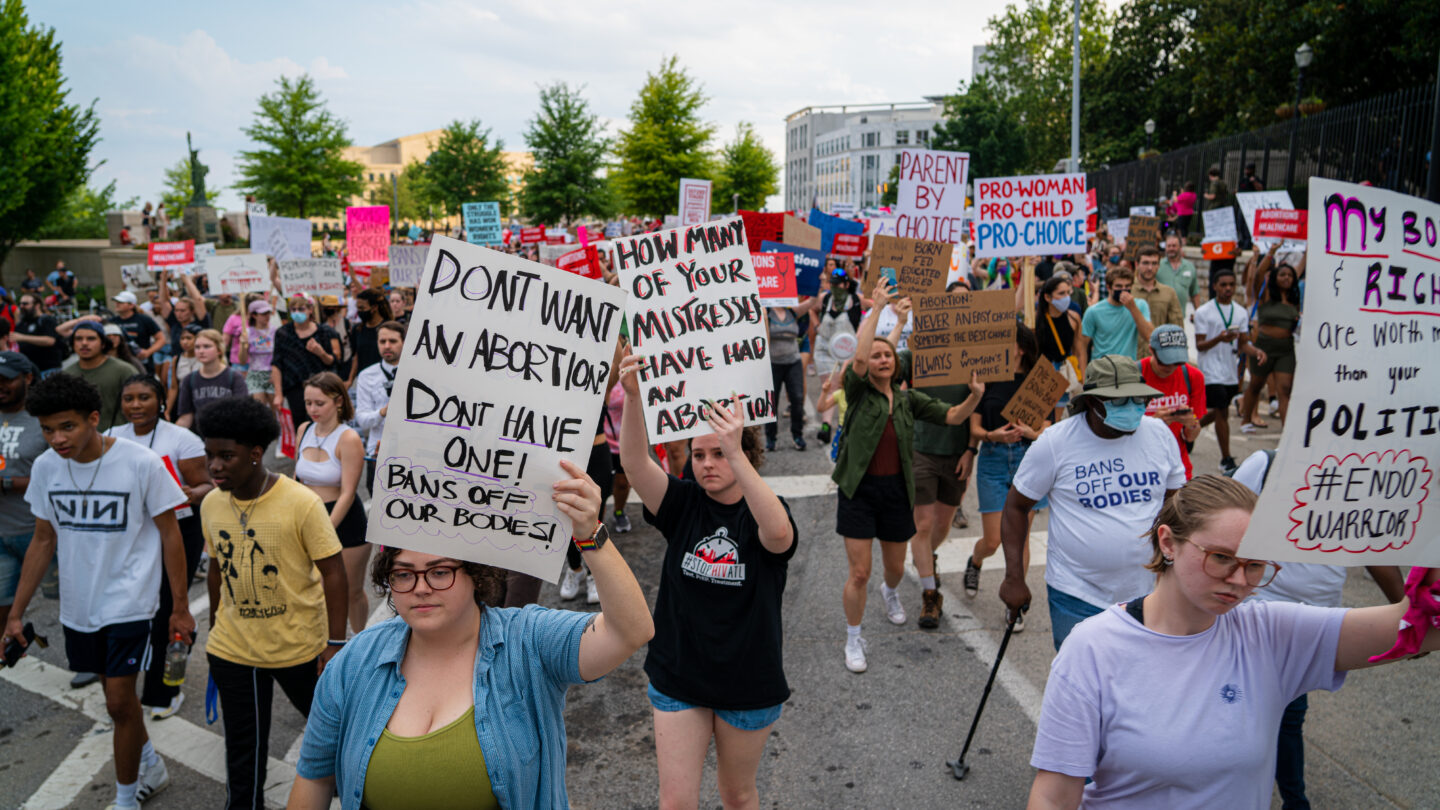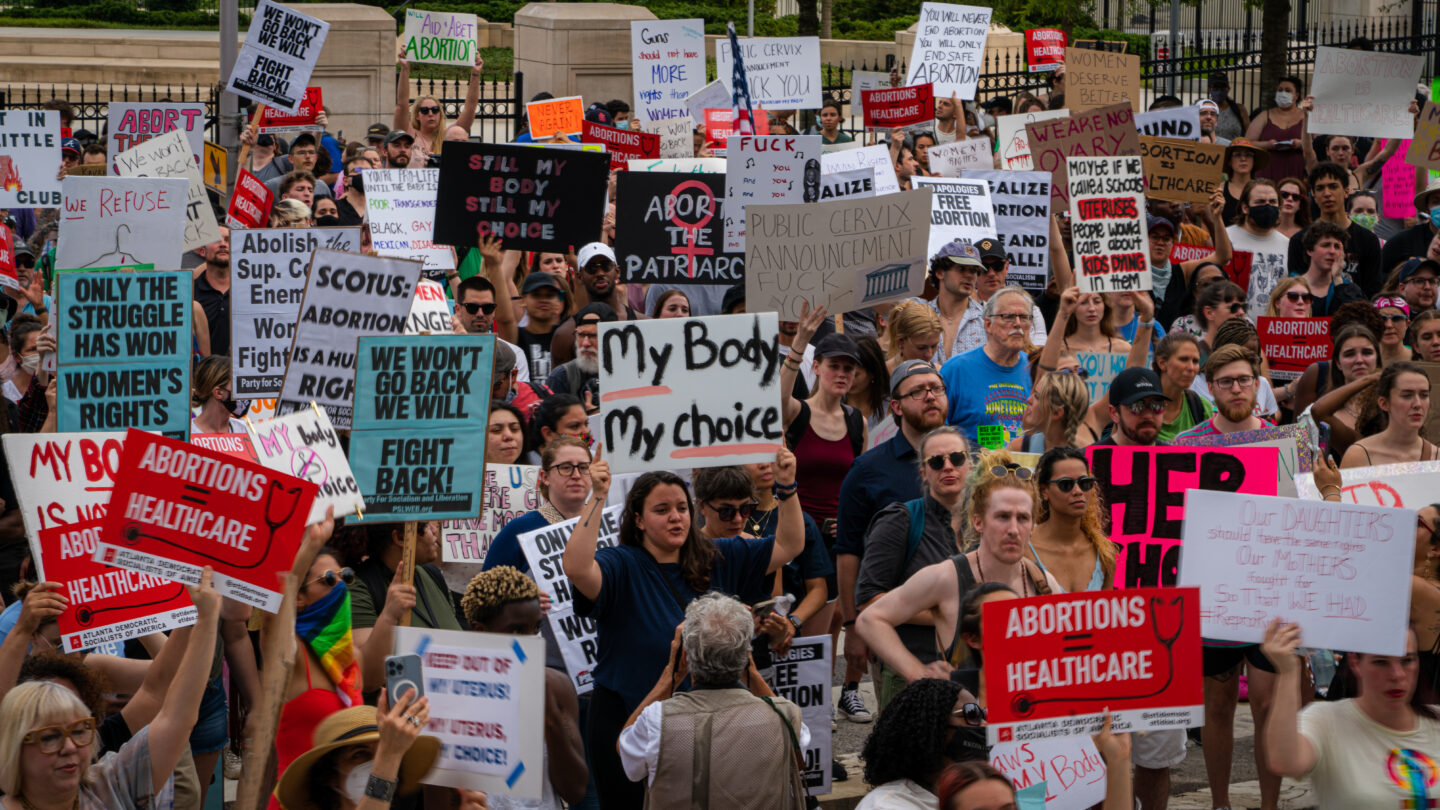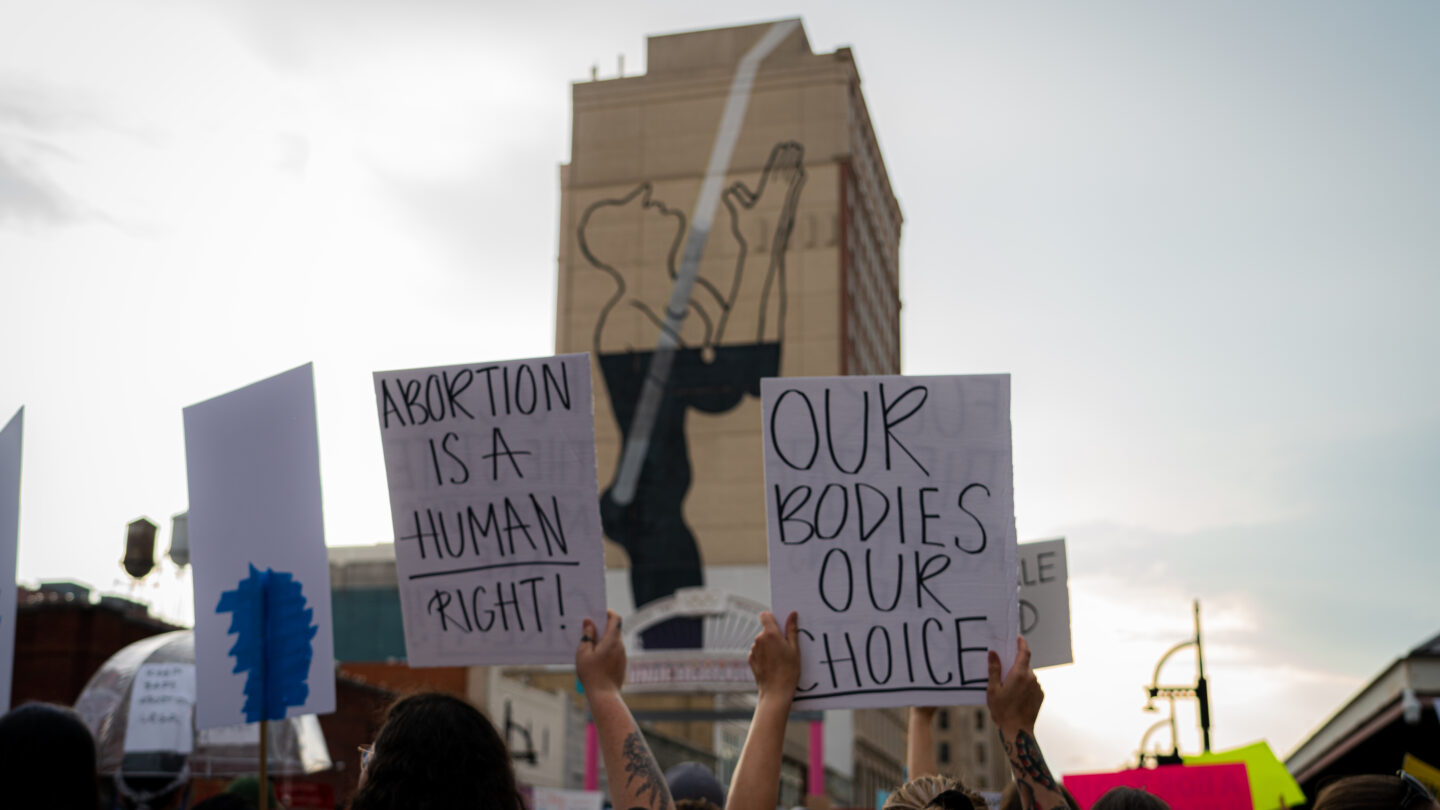In wake of Dobbs v. Jackson, abortion-rights supporters march in Atlanta and medical experts raise concerns

Abortion-rights supporters in Georgia and local medical experts say they’re worried about what comes next after the U.S. Supreme Court struck down Roe v. Wade.
Georgia already has a high maternal mortality rate. OB-GYN Dr. Nadine Becker said it’s at a crisis level now, and it could get worse if the state’s six-week abortion ban, which is currently on hold, goes into effect.
“We fear that without action to expand abortion access from our state leaders, many Georgians will die unnecessarily,” she said.
Over the weekend, protesters marched through downtown Atlanta, gathering at the State Capitol and Centennial Olympic Park.
Janet Starks drove an hour north from Grantville to join the protest at the Capitol on Saturday. She said she feels like Democratic politicians aren’t doing enough.
“We need to look at our local offices,” she said. “We all need to step up. If we’re not doing it for us, we do it for our kids, we do it for our friends.”
What happens in Georgia doesn’t only affect Georgians, according to OB-GYN Dr. Lisa Haddad, an Emory School of Medicine Associate Professor who also treats patients at abortion clinics around Atlanta. She said she sees a lot of patients from out of state whose first-trimester pregnancies are too far along for an abortion at home.
“Just logistically, you can imagine flying up, being around nobody that you know, and having to undergo a procedure and then get on a plane and go back home,” she said.

Haddad said she knows those patients are the lucky ones. She worries that, without Roe v. Wade, more women who can’t afford to travel will be forced to continue risky unwanted pregnancies.
“It’s not just single teenagers. It’s parents that have multiple kids that don’t want or can’t afford another child. It’s people with complex medical conditions,” she said. “Pregnancy is not a benign condition. Pregnancy has risks in itself, and it shouldn’t be trivialized in that respect.”
But it’s not the just the physical health risks of continuing a pregnancy. A study from the University of California compared the experiences of women who’d gotten abortions with those who were denied the procedure because of gestational limits.
It found impacts including an increase in poverty, women being more likely to stay with a violent partner, or to raise a child alone.

Kaelan McIntosh, who joined the protest downtown on Saturday, said she sees more protests in the future if abortion rights are not restored.
“If things don’t change, we need to do something about it because women are going to be dying,” she said. “It’s really a shame that it would come to that, and I hope it doesn’t but we need to fight back.”








